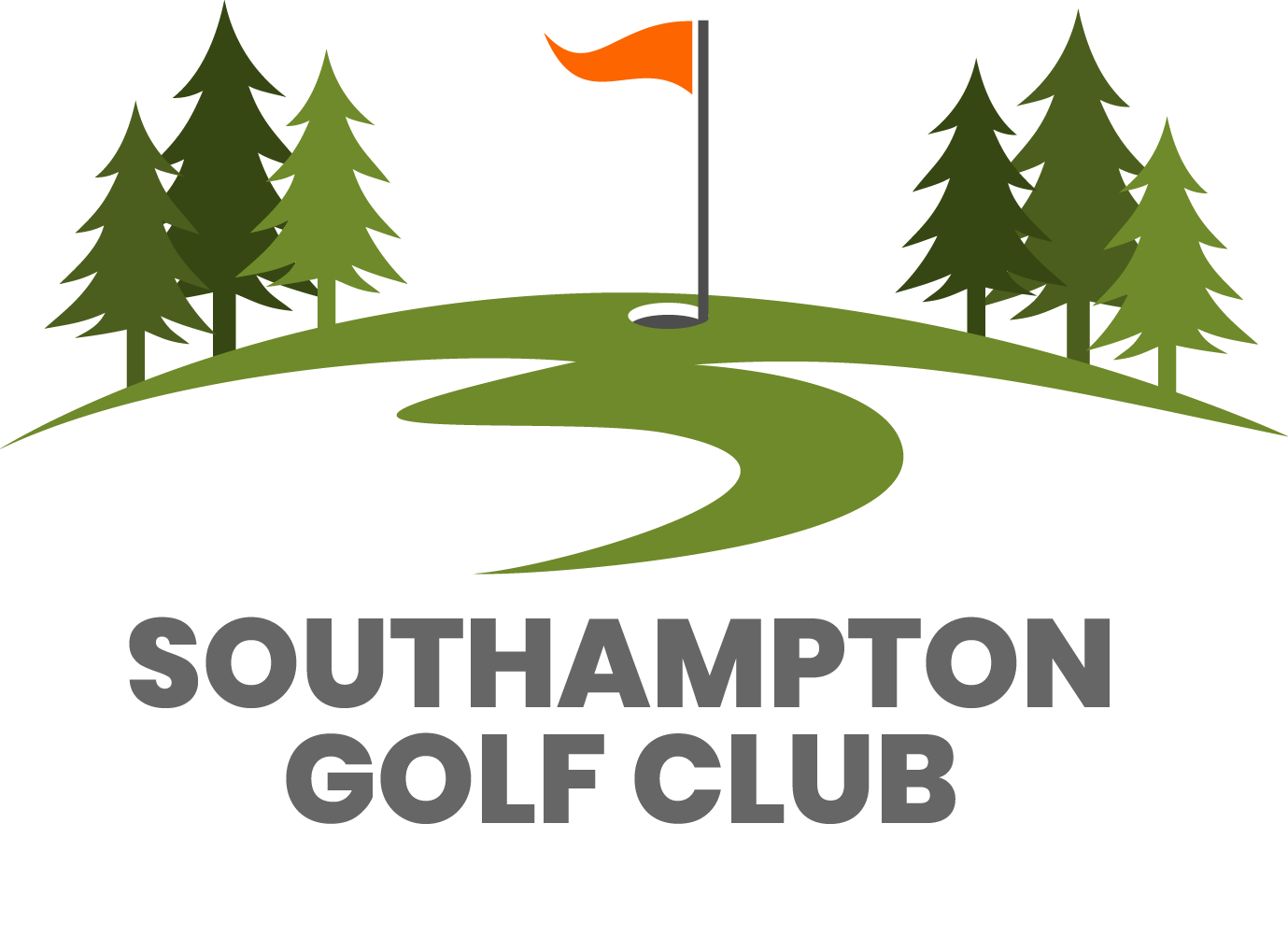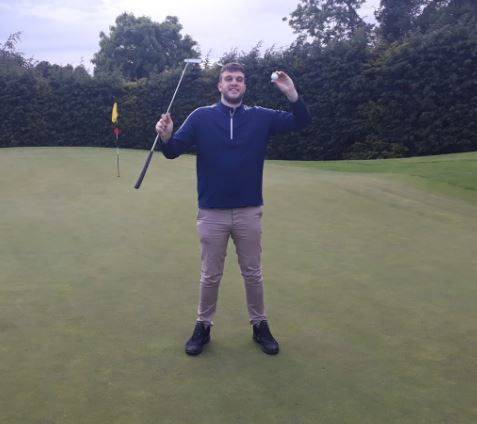Pros And Cons Of Forged Irons – Who Should Be Using Them?
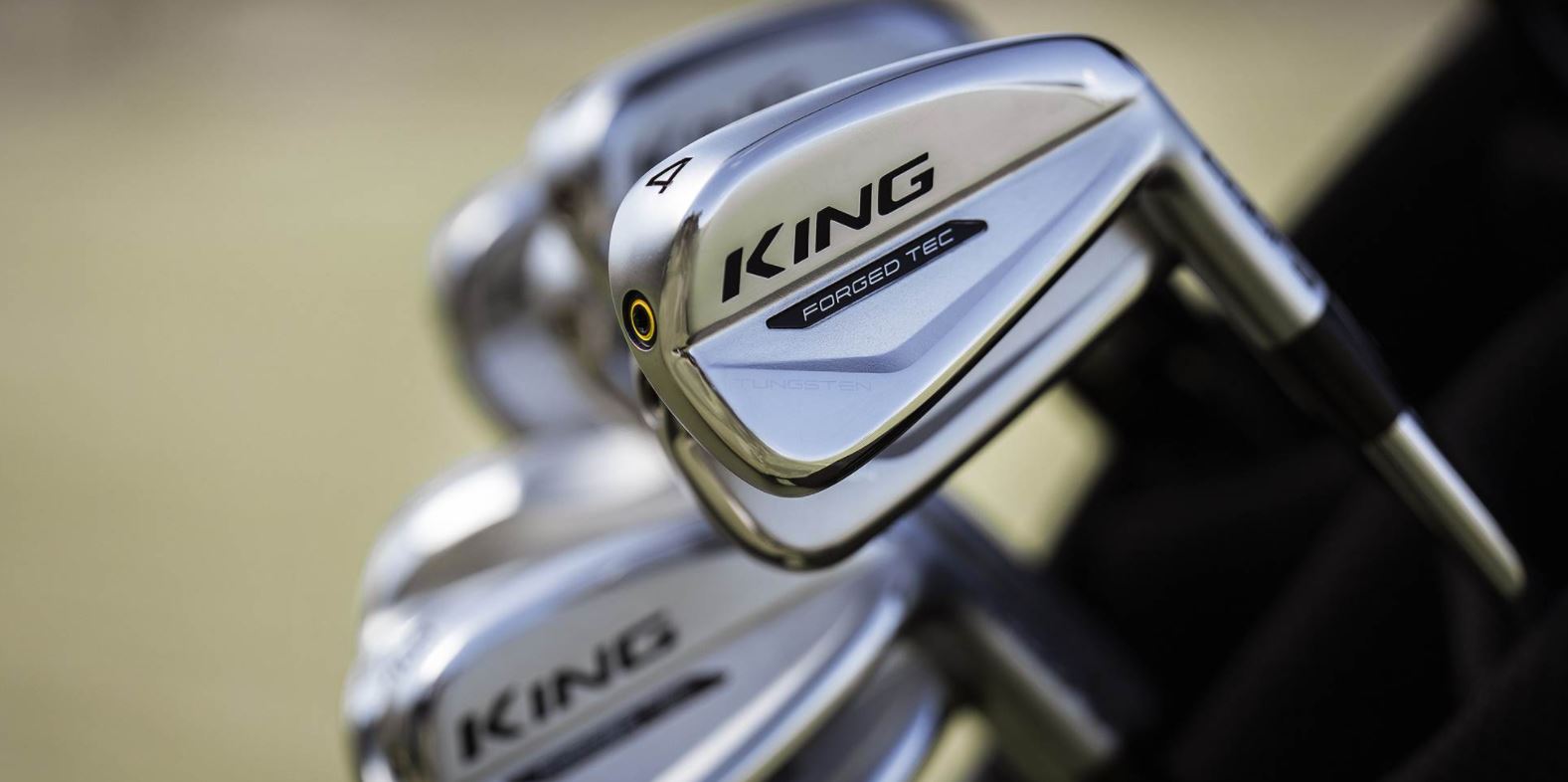
When you are hunting for a new set of irons, you will likely hear two terms thrown around repeatedly, forged irons and cavity-backs.
These are the two predominant types of irons available on the market. Cavity-backs are commonly linked to game-improvement irons, while blades are usually forged.
Higher handicap golfers are encouraged to use cavity-backs for their forgiveness. But, lower handicappers and Pros enjoy the shot shaping ability, slick look, and incredible feel that blades deliver when you middle it.
This article is designed to identify the pros and cons of forged irons. It is our intention to better uncover and understand who should be using them?
Overview Of Forged Golf Irons
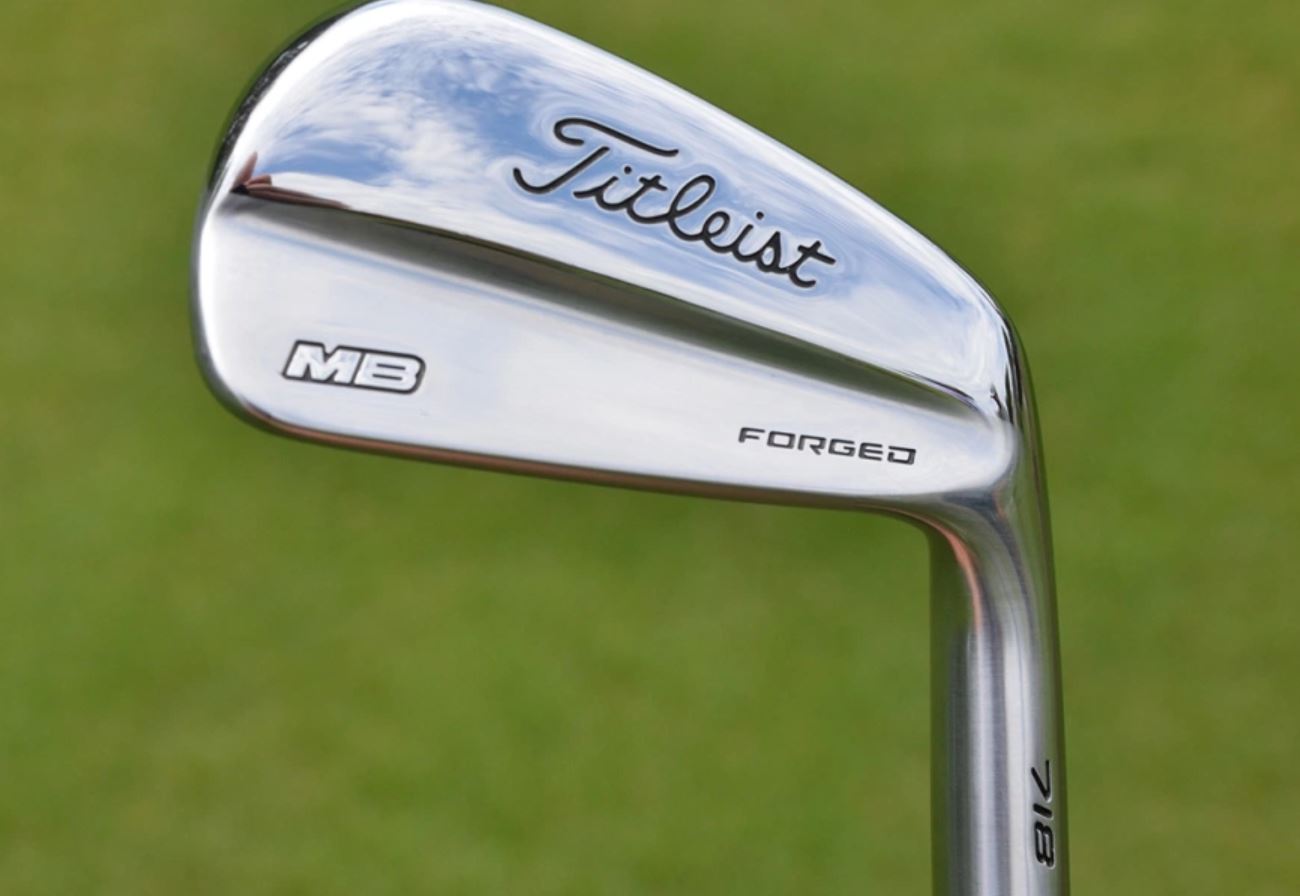
For the first ten years of my golfing journey, I used forged blade irons. While these irons provided the crispest feeling and acoustics on strikes out of the sweet spot. They were relentless on off-center strikes costing me significant distance and accuracy.
I only ever suggest that you play with forged irons if you are confident that you can consistently strike the ball cleanly and get it airborne. If you are unable to achieve this, then I suggest sticking to game improvement irons.
What Exactly Are Forged, Irons?
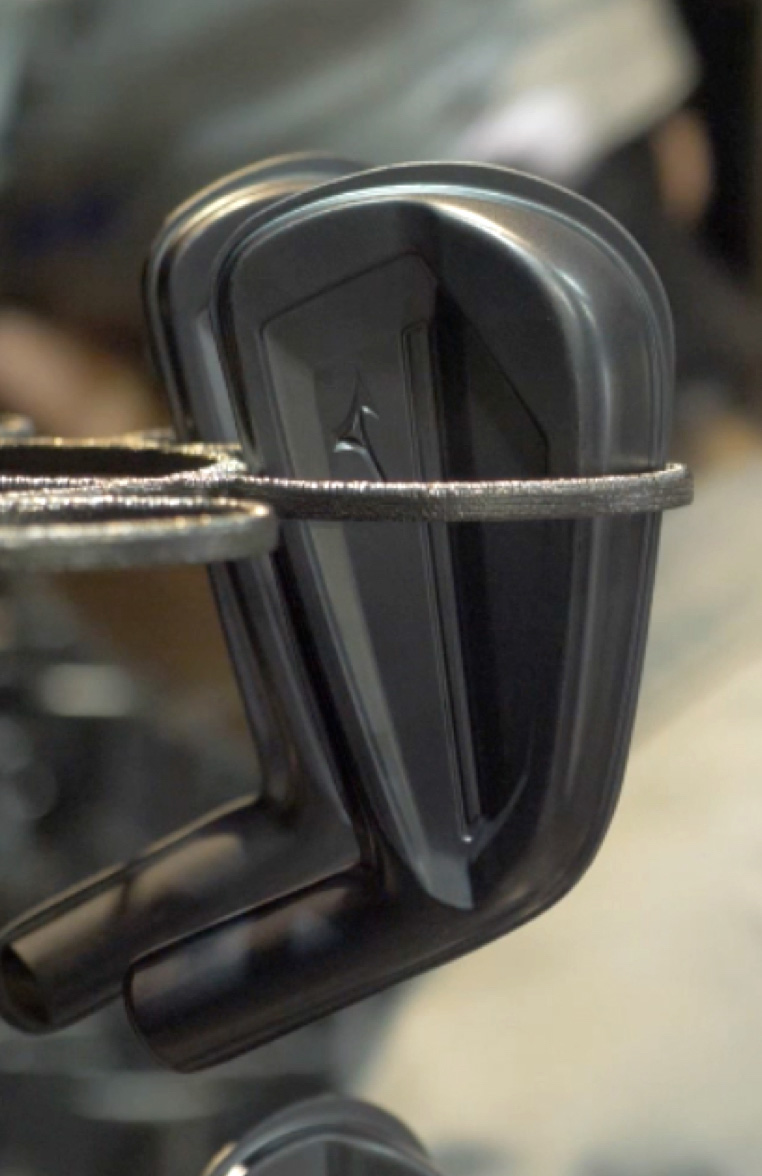
As the name suggests, these irons are forged from a single piece of metal to create a compact blade head. Forged irons are not a type of club but rather the manufacturing process which irons undergo.
Golfweek’s Don Patton notes that all irons were crafted this way until the 1960s until cavity-backs were created from casts. Blades or players irons are the most common form of forged iron that is available on the market.
How Are They Made?
Forged irons are made from a single piece of metal that remains solid throughout the process. The metal is pounded into shape until the desired club head shape has been achieved.
What Type Of Golfers Use Forged Irons?
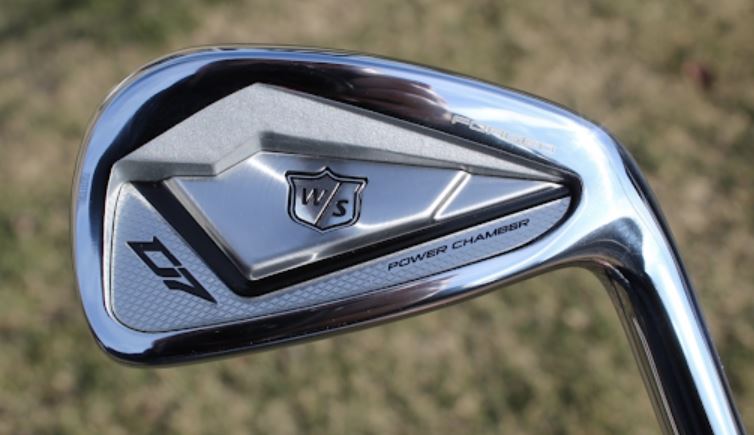
Earlier I mentioned that blades or players’ irons are the most common club crafted using a forging process. It is for that reason that lower handicappers and professional golfers use forged irons.
The compact head size and unforgiving nature of forged irons are not conducive to optimum play for mid and high handicap players.
Cast Irons Vs Forged Irons History
It was not until the 1960s that the casting process was introduced by Ping. Before that, irons were crafted by forging a single piece of metal at all times.
Since the 1960s, cast irons have become a popular production practice, thanks to the ease of manufacturing them at scale.
Cast Irons Vs Forged Irons Key Differences
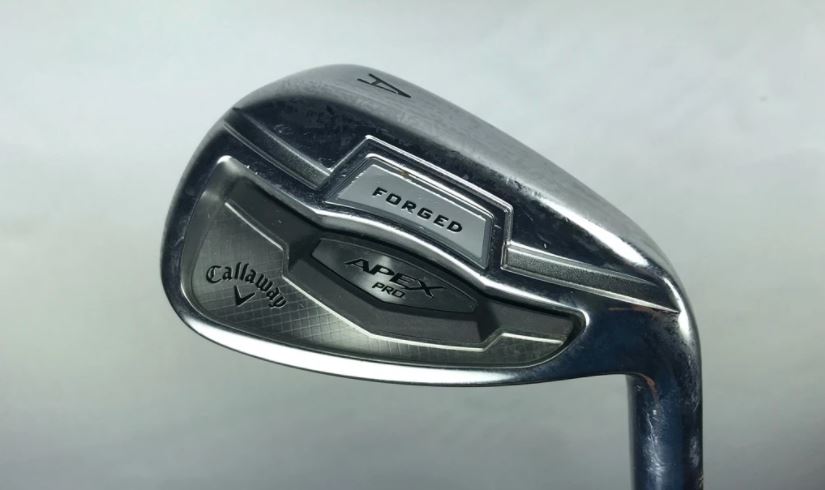
Cast Irons
- Crafted using a cast mold
- The liquid is inserted into the cast to produce the head shape
- Less expensive production process
Forged Irons
- Clubhead forged from a single piece of metal
- Manual Process
- Expensive production process
Forged Vs Cast – Short Irons Performance
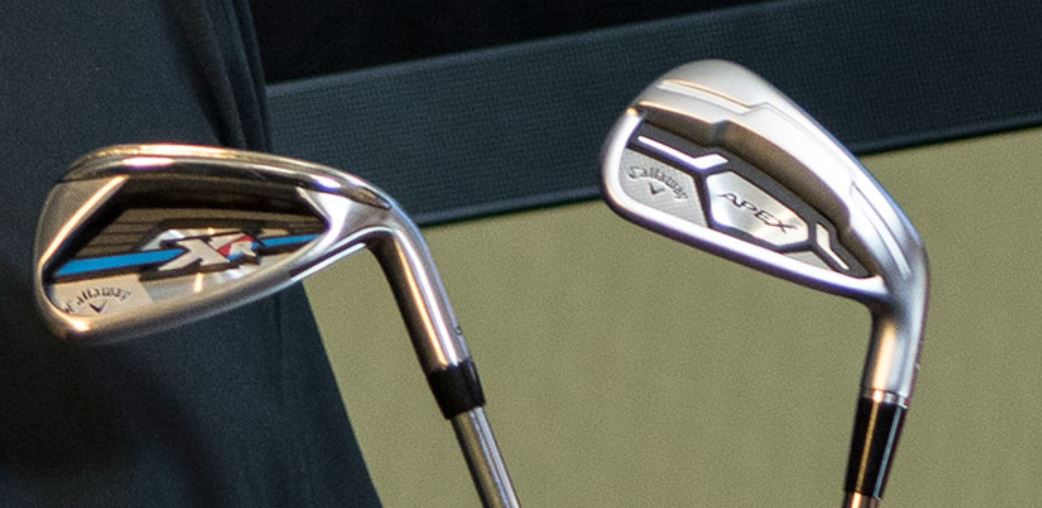
There are few substitutes to a crisp forged iron wedge shot that hits the green skips twice and spins slightly to stop dead.
However, if you don’t hit it out the middle, you will feel vibrations running down the shaft and into your grip. And the ball will not finish near the intended target.
Conversely, irons produced using the cast production method offer more forgiveness and minimize unwanted vibrations on off-center strikes.
Forged Vs Cast – Long Irons Performance
The lower CG in the long cast irons makes it a wiser choice for all golfers.
When the CG is placed lower in the irons, it promotes a more powerful launch that results in consistent carry and distance.
Pros Of Forged Irons
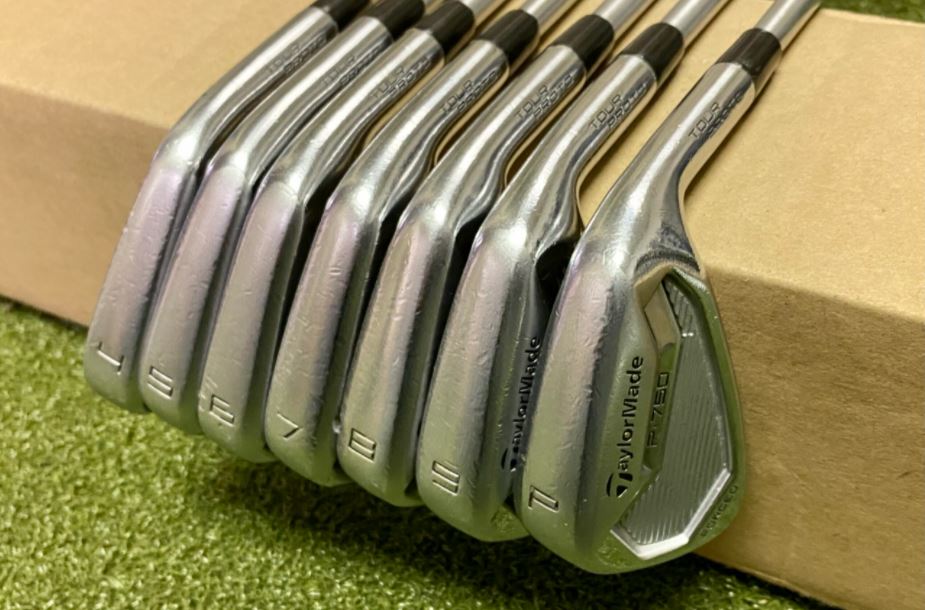
Softer Feeling
Those of you who have struck a blade out of the sweet spot will know that there are few better feelings. It is one of the reasons why lower handicappers and pros prefer forged irons over cast-produced irons.
However, if you do not hit your shots out of the reduced sweet spot, you will endure harsh vibrations. Game improvement irons that are manufactured using a casting technique contain technology and padding to minimize the vibrations of off-center strikes.
More Control Around The Greens
The design of forged irons gives it superior turf interaction abilities, which is great for making solid contact with your ball and generating spin and control around the greens.
However, as is the case with all forged iron shots, if you do not hit it in the sweet spot, you risk hitting it thin or hooking and slicing your shot.
Forged Irons Have Improved In Line With Cavity Backs
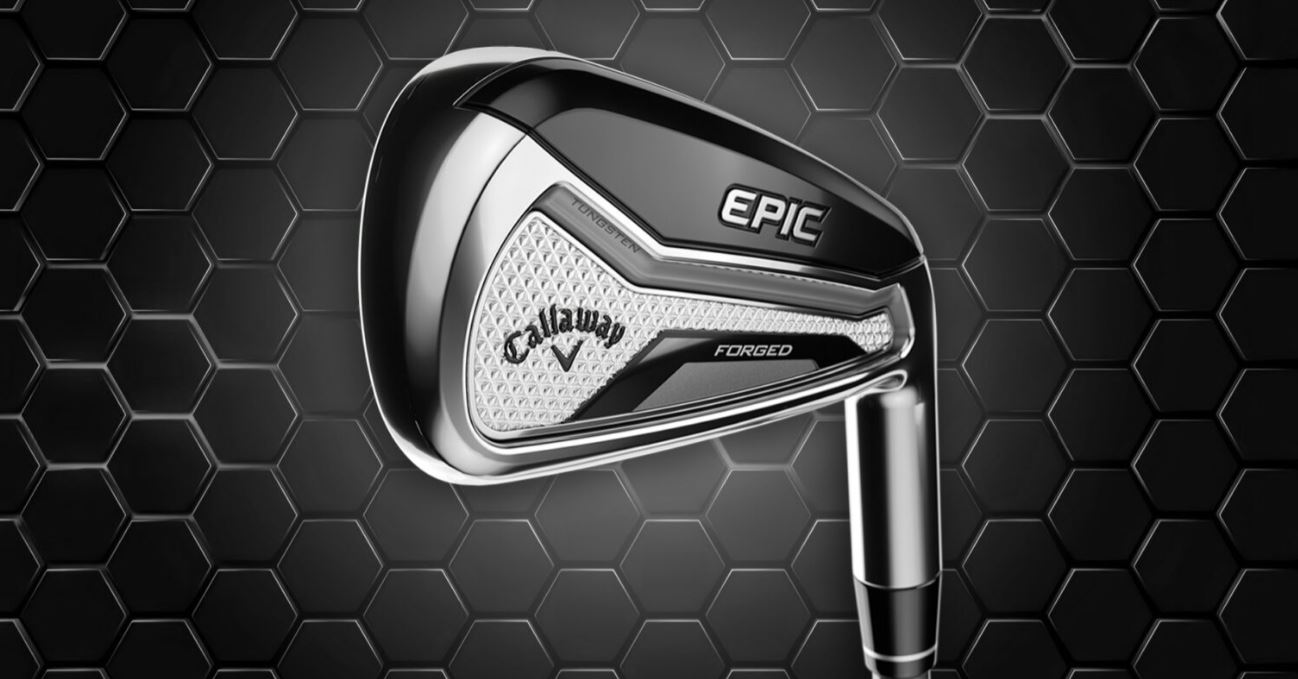
Technology has enabled manufacturers to get creative with their forged iron designs.
As a result, blades or players’ irons are not the only forged iron option on the market.
These days there are players’ distance and game improvement irons that are crafted using the forged process.
Manufacturers have been able to add forgiveness to their forged irons and promote increased clubhead speeds and straighter shots.
Cons Of Forged Irons
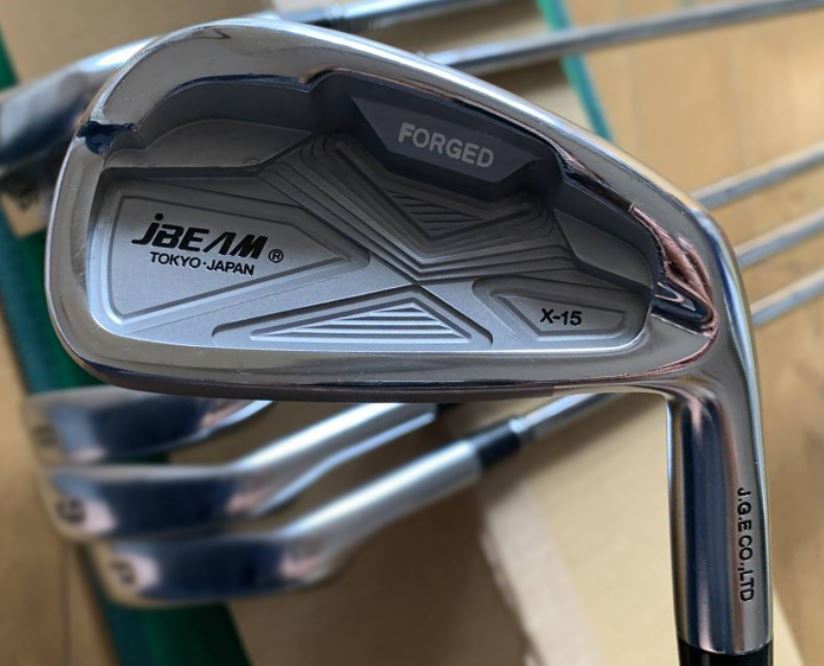
Smaller Sweet Spot
Considering that most forged irons are blades, players irons, or players distance irons, they tend to have a small sweet spot, concentrated directly behind the center of the face.
Off-center strikes can lead to violent hooks, slices, and a significant loss of distance.
It is for these reasons that forged irons are best suited to lower handicappers and professional golfers.
Better For Lower Handicap Players
The compact head design of most forged irons, coupled with its small sweet spot and unforgiving nature, means these clubs are for the superior golfers among us.
The average golfer will struggle to get the ball airborne and straight with forged irons in hand.
More Expensive
The process of crafting forged irons requires hammering a single piece of metal until you have achieved the desired shape.
This is a manual process, requiring a longer dedicated process.
Less Durable
The casting process of cavity back irons is more controlled and enables manufacturers to produce the clubs at a consistent level.
When the liquid is inserted into the cast sets, it becomes tougher than forged irons.
Most Forgiving Forged Irons – Mini Review
Taylormade P790 Iron Set
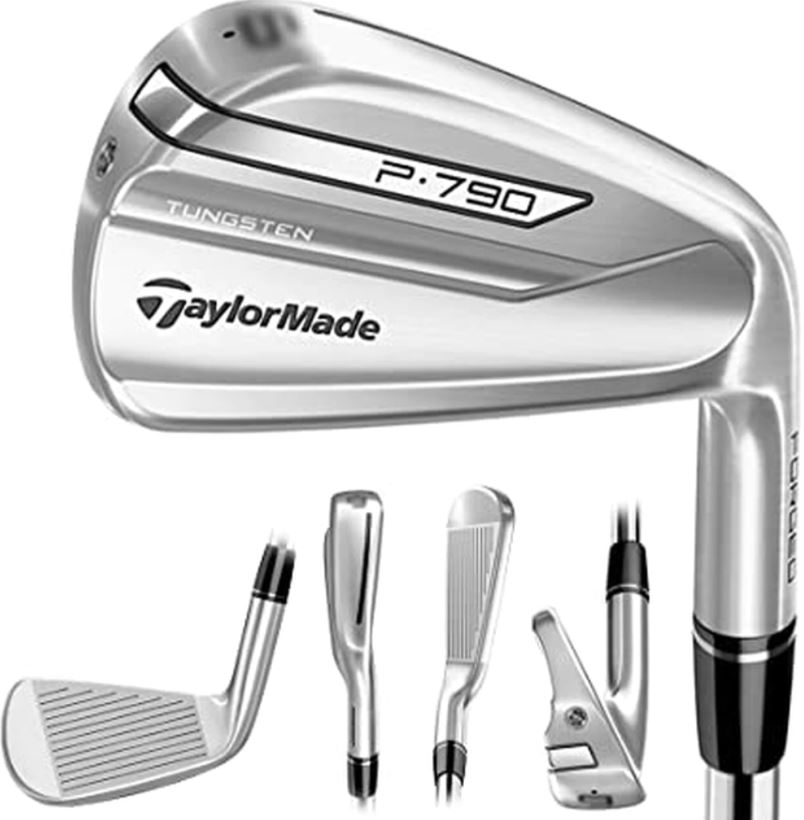
Key Features
- Light urethane foam is inserted to provide faster clubhead speed and more forgiveness
- A thinner forged face helps to maximize the COR of the irons
- Low profile tungsten weighting lowers the CG resulting in a higher, powerful launch
Pros
- Delivers accelerated clubhead speed
- Promotes straighter, more accurate shots
- Helps to generate a more powerful launch
- Gives you consistent carry and distance
- Provides a high level of forgiveness
Cons
- The mid to low launch may not suit players who struggle to get the ball airborne
- Moderately expensive
Overall Score: 95/100
Check Out More Reviews Here:
![]()
Mizuno JPX921 Hot Metal Iron Set
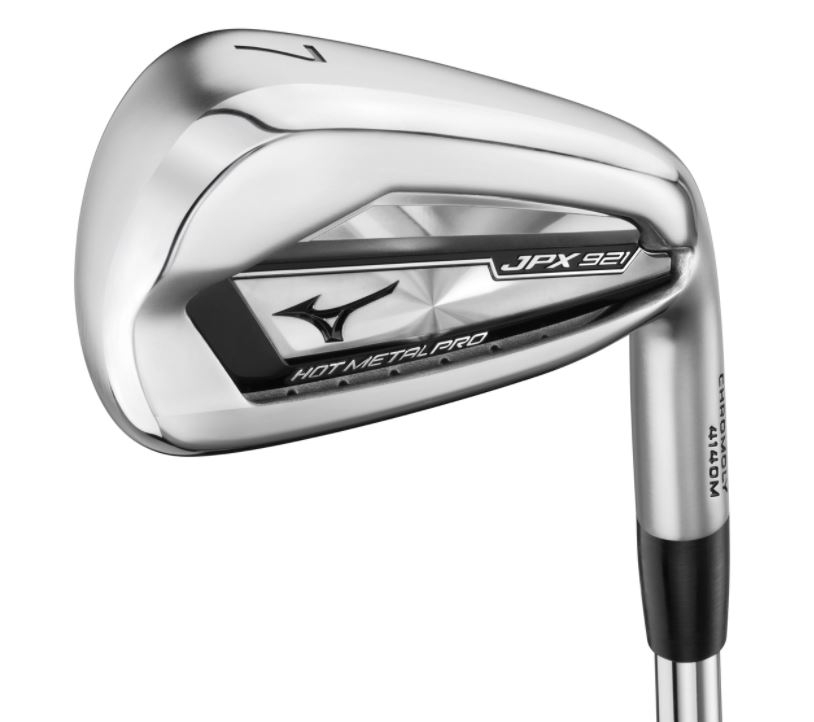
Key Features
- Thin face
- Thick sole for an enhanced face flex
- Harmonic impact improves the acoustic feedback of the irons
- Pearl brush finish reducing glare
- Extreme perimeter weighting ensures clubhead stability on off-center strikes
Pros
- Delivers faster clubhead speed
- Generates accelerated ball speed
- The cup face design promotes additional face flex
- Forgiving
- Anti-glare finish
Cons
- The thicker sole may be off-putting at address, for some golfers
- Additional offset is not suitable for players looking for extra side spin to shape shots
Overall Score: 93/100
Check Out More Reviews Here:
![]()
PXG 0311 SGI Gen 2 Irons
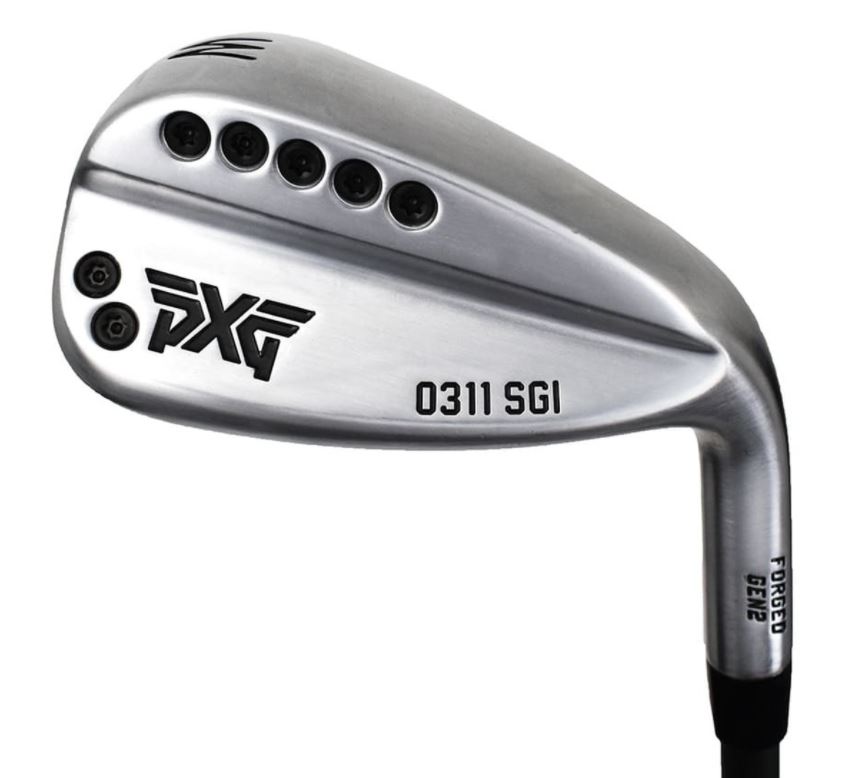
Key Features
- Forged super game improvement irons
- Long blade
- Enhanced offset
- Wide sole width
- COR2 technology applied to dampen vibrations
- A thin face amplifies MOI
Pros
- Promotes straighter ball flight to keep you in play
- Delivers a higher launch to provide further carry and total distance
- Suited to higher handicappers and golfers with slower swing speeds
- A 15% larger functional area on the face delivers a trampoline effect, resulting in an increased coefficient of restitution (COR) at impact.
Cons
- The noticeable offset is not ideal for players looking to shape their shots
- The wider sole and chunky appearance may be off-putting to lower handicappers and traditionalists
- A higher launch may cause players with faster swings to balloon their shots
Overall Score: 91/100
Check Out More Reviews Here:
Best Forged Irons For Mid Handicappers
Mizuno JPX921 Forged Irons
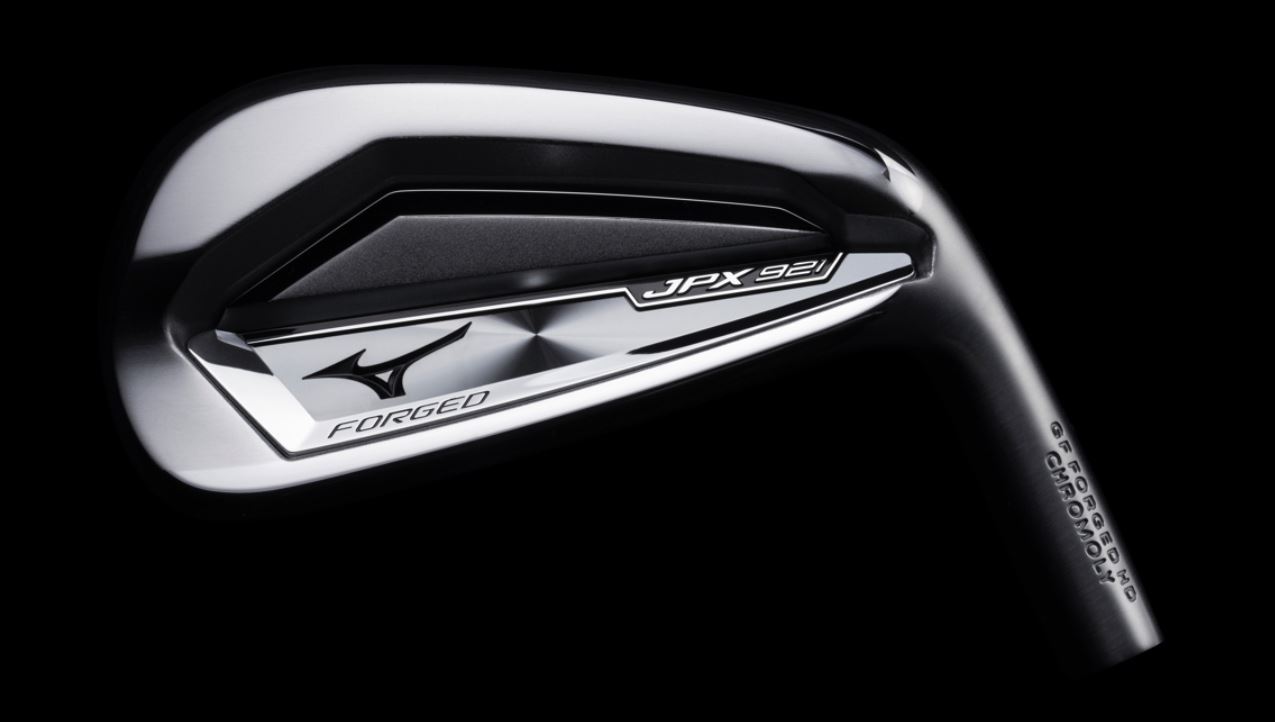
Key Features
- Grain flow forged irons
- Clubface thickness is 0.5mm thinner than previous irons
- Short blade length
- A wide back milled slot enhances the clubhead’s stability on off-center strikes
- Added perimeter weighting with toe-bias
- Covered with a pearl brush finish
Pros
- Soft feel at the impact on strikes out of the middle
- Promotes accelerated ball speed in your 4 to 7 iron shots
- Reduced offset allows for better shot workability
- Mitigates against off-center strikes to deliver excellent forgiveness
Cons
- A smaller club head may be challenging for beginners and high handicappers to play
- Moderately expensive
Overall Score: 93/100
Check Out More Reviews Here:
Cobra King Forged Tec
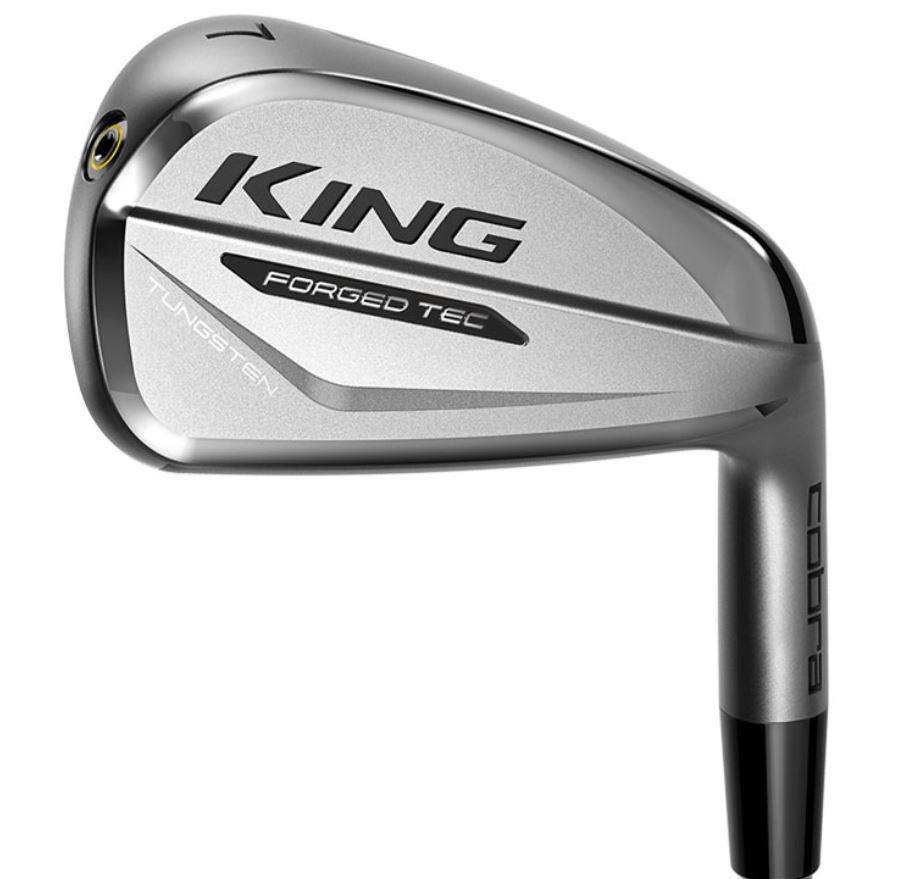
Key Features
- Traditional muscle back design
- Low CG
- Foam microspheres are inserted into the cavity for improved feel and acoustics
- Each iron is optimized to deliver the ideal launch, apex, and spin through the bag
- A one-length shaft option is available with these irons
- Contains a forged PWRSHELL face
Pros
- Built with an expanded sweet spot to enhance forgiveness
- Promotes a high launch
- Designed to generate accelerated ball speed at impact
- Low CG provides a higher launch
- Soft feel
- Excellent acoustics
Cons
- Reduced forgiveness
- Not ideal for high handicap golfers
Overall Score: 94/100
Check Out More Reviews Here:
Cleveland Launcher UHX Iron Set
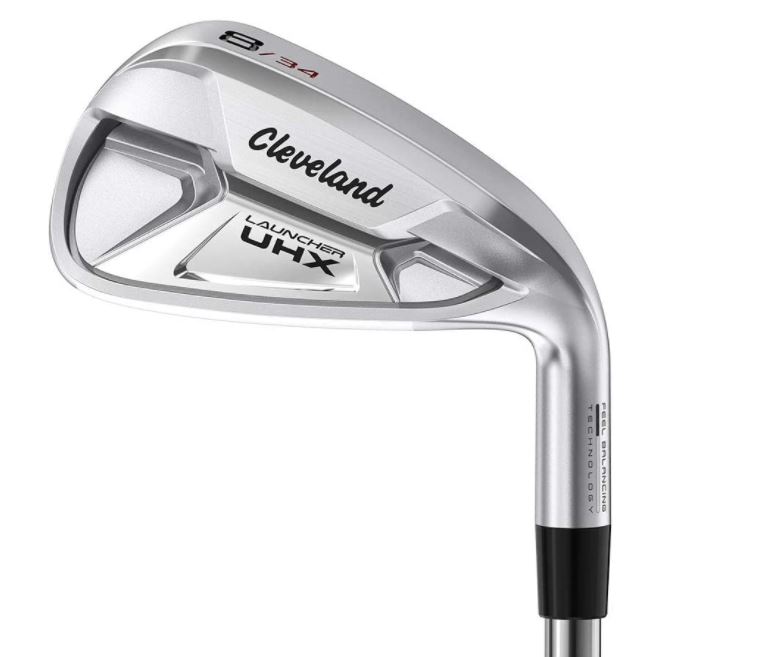
Key Features
- Hollow cavity back design
- Contains a high strength steel face
- Designed with a V-shaped sole for improved turf interaction
- The face contains Tour zip grooves for amplified spin
Pros
- Forgiving
- Long irons promote a high launch
- Short irons are designed to increase your control when attacking the pin on your approach
- Excellent turf interaction enables you to navigate challenging lies
- Designed to deliver maximum levels of spin
- Provide excellent distance
Cons
- Limited stock shaft options are available.
Overall Score: 92/100
Check Out More Reviews Here:
Best Forged Irons For Low Handicappers – Mini Review
Callaway X Forged CB Iron Set
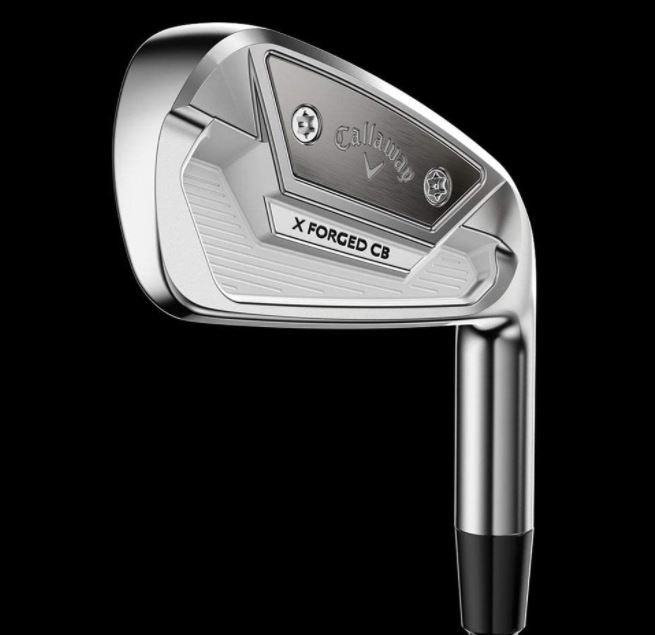
Key Features
- A players iron head design
- Equipped with adjustable plate weights
- Constructed with MIM’d tungsten weighting
- Fitted with a Tour tuned faceplate
- CG is centered for a lower launch
Pros
- Promotes increased ball speed
- Delivers tour-level spin
- Excellent shot shaping ability
- The Project X IO shaft is optimized for every iron in the set
Cons
- An expensive set of irons
- Not ideal for mid and high handicap golfers
- Limited forgiveness
Overall Score: 94/100
Check Out More Reviews Here:
Srixon Z-Forged Iron Set
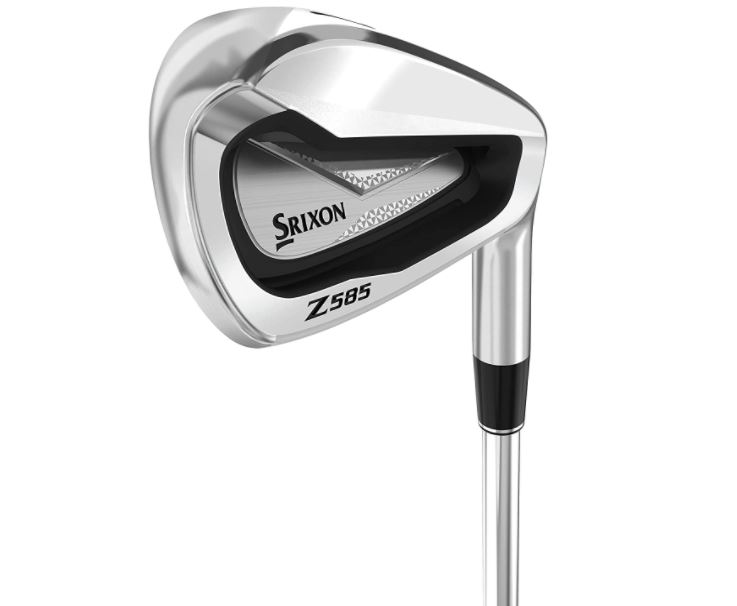
Key Features
- Classic muscle back iron design
- Forged from 1020 carbon steel
- Designed to shape shots
- Tour V.T sole promotes consistent ball speeds for a consistent launch
Pros
- Soft feel on shots off the center of the face
- The set includes a 3-iron, which is not common to find anymore
- Impressive acoustics
- Delivers consistent ball speed
- Excellent shot workability
Cons
- Moderately expensive irons
- Not designed for the average golfer
- Offers minimal forgiveness
- There is only one stock shaft available
- Srixon only sell one stock grip with these irons
Overall Score: 92/100
Check Out More Reviews Here:
Titleist T200 Iron Set
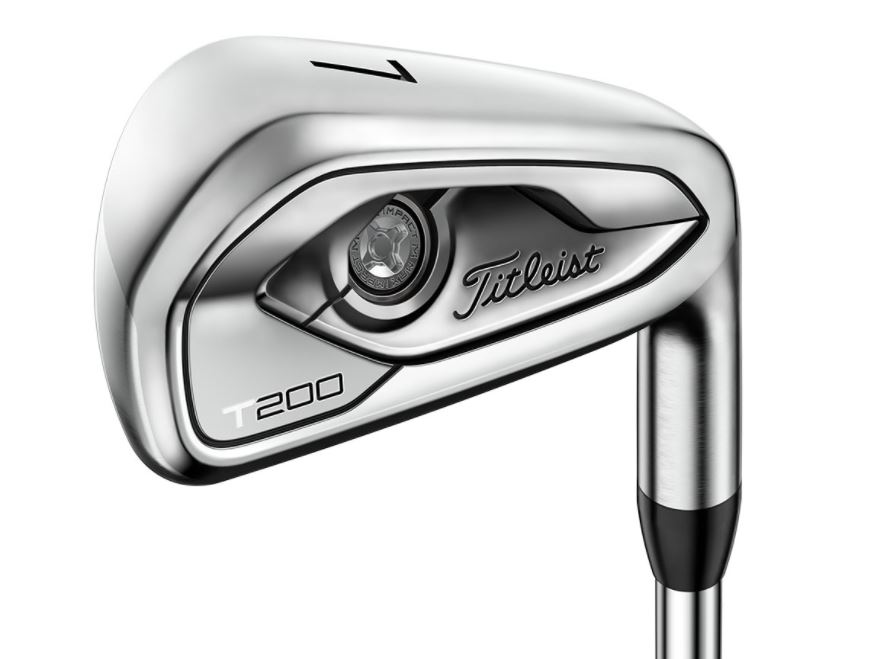
Key Features
- Tungsten weight added to the heel and toe for increased MOI
- Forged L-face prompts increased ball speeds
- Lower CG in the long irons for a higher launch
- Enhanced dampening qualities
Pros
- Forgiving
- Designed to deliver accelerated ball speed anywhere on the face
- Multiple stock shaft brands are offered
- Phenomenal acoustic feedback on shots out of the sweet spot
- Soft feel and minimal vibrations on strikes out of the center
- Delivers consistent distance
Cons
- Stock shaft options are only suited to golfers with fast and moderate swing speeds
- The lofts of the shorter irons are stronger than most sets, leaving you with a sizeable gapping challenge between your pitching wedge and the next wedge in line.
Overall Score: 94/100
Check Out More Reviews Here:
Conclusion
After looking into the pros and cons of forged irons, it is clear that these clubs are built for superior golfers. While forged irons offer incredible feel, acoustics, and greenside control, they are unforgiving and difficult to play.
Even though most of the forged irons that we looked at were best suited to lower handicappers and pros. There are options for mid to high handicappers. If this describes you, then I suggest testing a set of the Mizuno JPX921 Hot Metal Irons.
